Dakota Access Pipeline: Construction completion under way
- Published
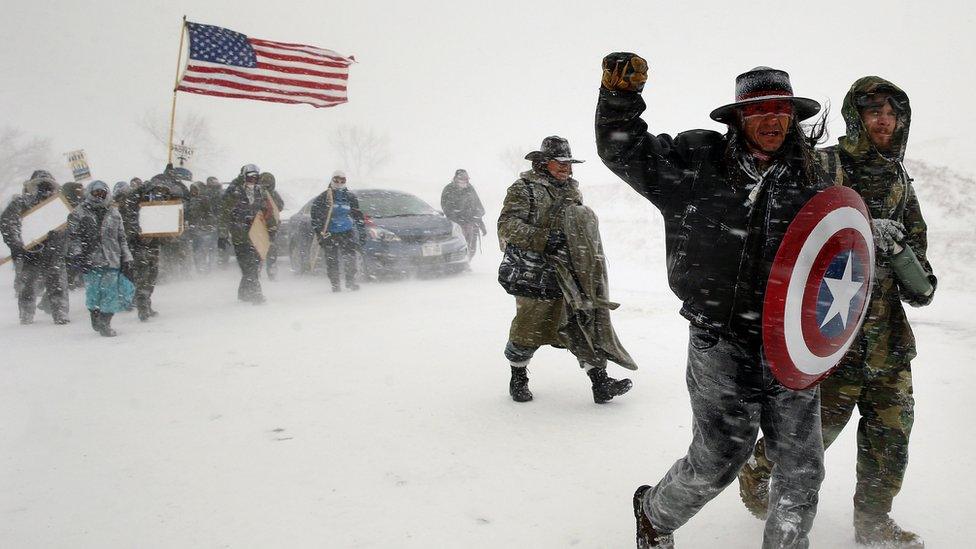
Veterans joined activists at the site to protest against the pipeline
Construction on the controversial Dakota Access oil pipeline has begun and is expected to be completed within three months, its developer said.
Energy Transfer Partners (ETP) was granted formal permission to proceed with laying the pipeline under a North Dakota reservoir on Wednesday.
The $3.8bn (£3bn) project had stalled for months due to opposition from Native American protesters.
The Standing Rock Sioux tribe says the pipeline endangers its drinking water.
ETP spokeswoman Vicki Granado confirmed on Thursday that construction resumed "immediately after receiving the easement".
An easement is special permit that allows a company to cross private land.
Also on Thursday, the Cheyenne River Sioux filed a legal challenge, asking a federal judge to stall the project's completion while a lawsuit against the pipeline continues.
Attorney Nicole Ducheneaux said the pipeline "will desecrate the waters upon which Cheyenne River Sioux tribal members rely", according to court documents.
The final section of the project is a crossing under Lake Oahe that would carry North Dakota oil through the pipeline to Illinois.
Entry and exit holes had already been drilled into the pipeline and oil was stored inside in anticipation of the project's completion.
"The estimate is 60 days to complete the drill and another 23 days to fill the line to Patoka," Ms Granado said, referring to the shipping point at the pipeline's destination in Illinois.
The Army had begun further study of the river crossing after contamination fears raised by the Standing Rock tribe, but it notified Congress on Tuesday that it would stop the study and grant ETP permission to continue work.
The decision came after Donald Trump formally backed the project last month in one of his first acts as US president.
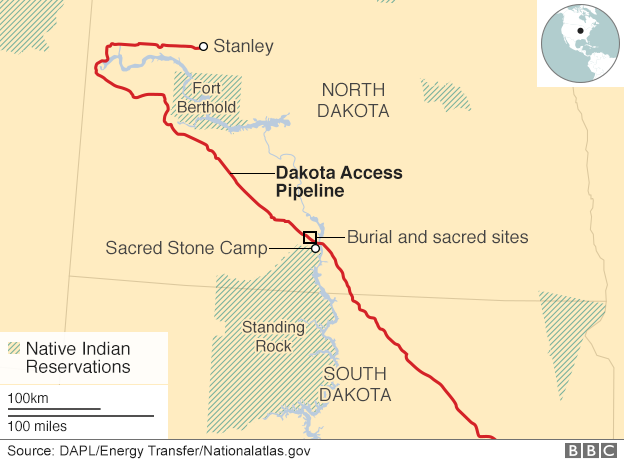
Thousands of predominantly Native American protesters have boycotted the pipeline's construction in the state of North Dakota.
The 1,172 mile (1,886km), four-state project is almost finished except for the one-mile stretch under Lake Oahe, where demonstrators have set up protest encampments.
The Obama administration announced in September that it would not allow the project to proceed, but Mr Trump overturned the decision.
Standing Rock Sioux lawyers said approval of the project cannot be "legally granted at this time".
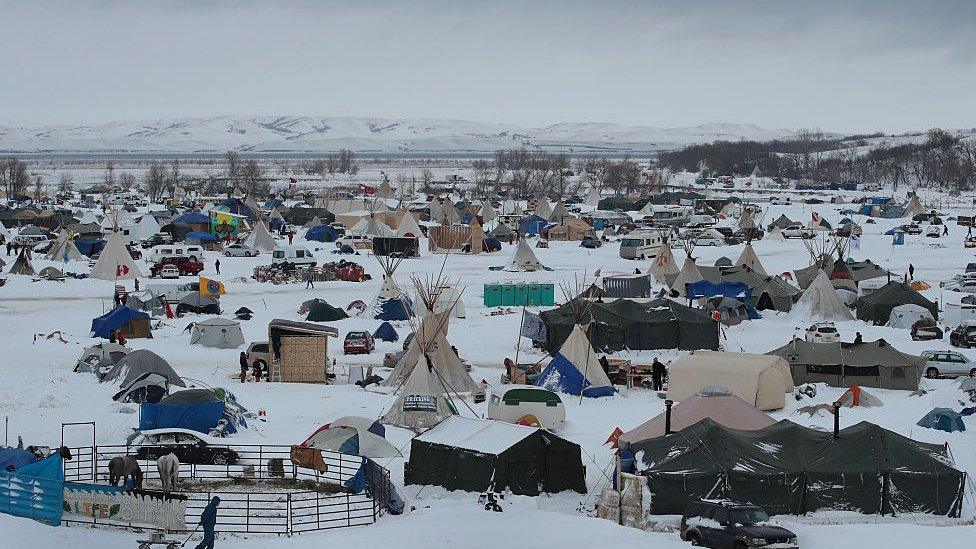
Protests have raged in the North Dakota plains
Environmental groups have also vowed to fight the pipeline.
Nearly 700 people have been arrested since protests first began last year, according to law enforcement officials.
The Army Corps told protesters who remain at the encampment that the government-owned land will be closed on 22 February.
But Payu Harris, one of the demonstrators, said a new camp is being built on private land.
"This is not over. We are here to stay. And there's more of us coming," he said.
Tribal Chairman Dave Archambaul said in a statement on Wednesday that his tribe will continue to pursue "in the courts".
"We will continue to fight against an administration that seeks to dismiss not only our treaty rights and status as sovereign nations, but the safe drinking water of millions of Americans," he said.
- Published7 February 2017
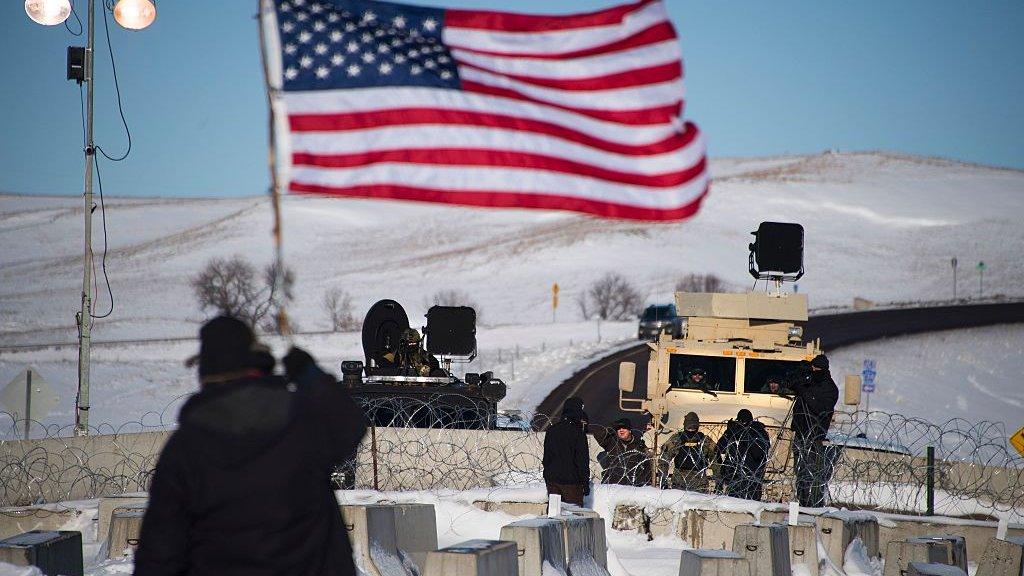
- Published5 December 2016
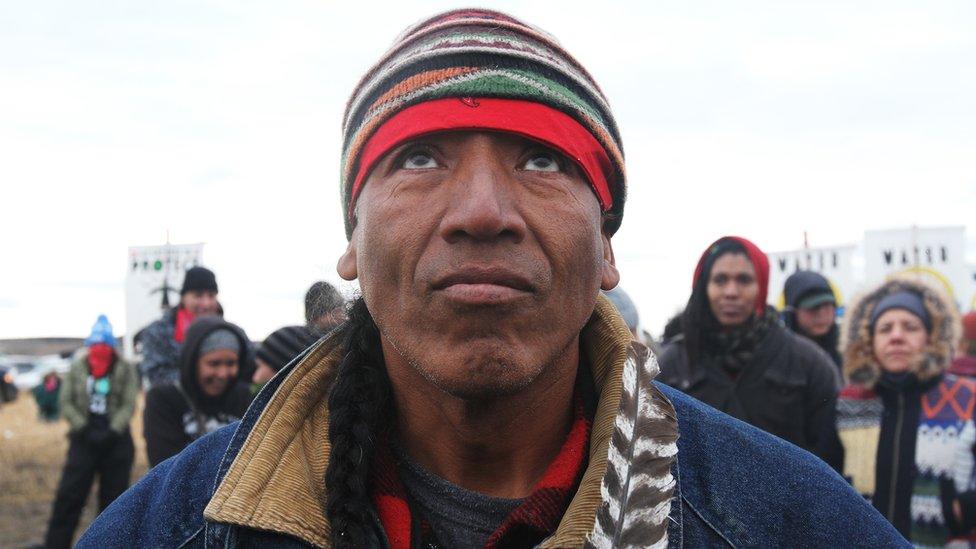
- Published7 February 2017
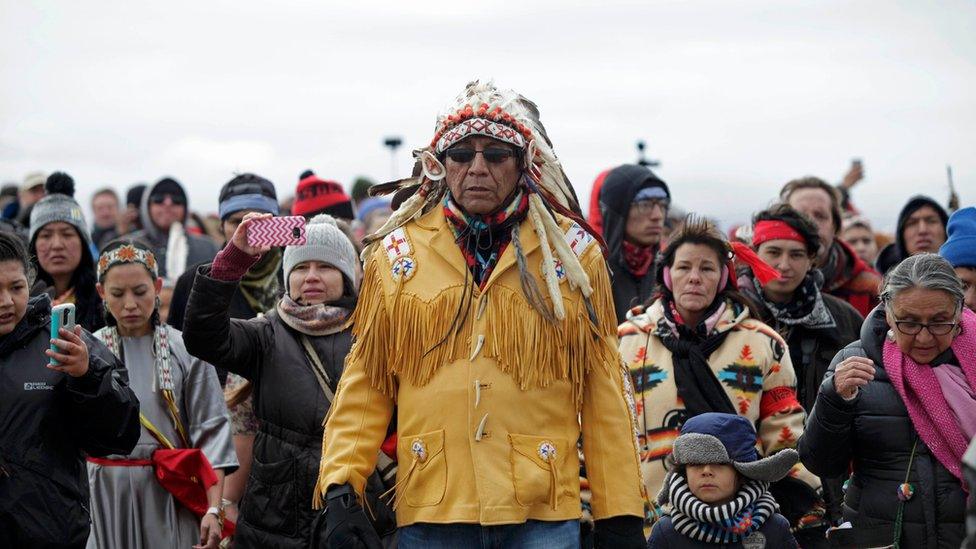
- Published2 December 2016
